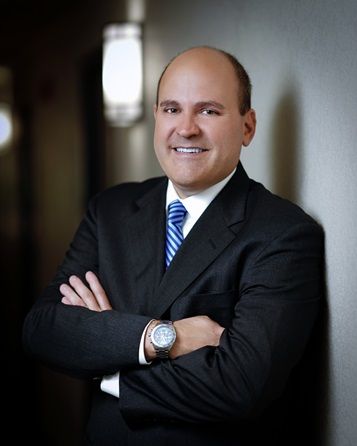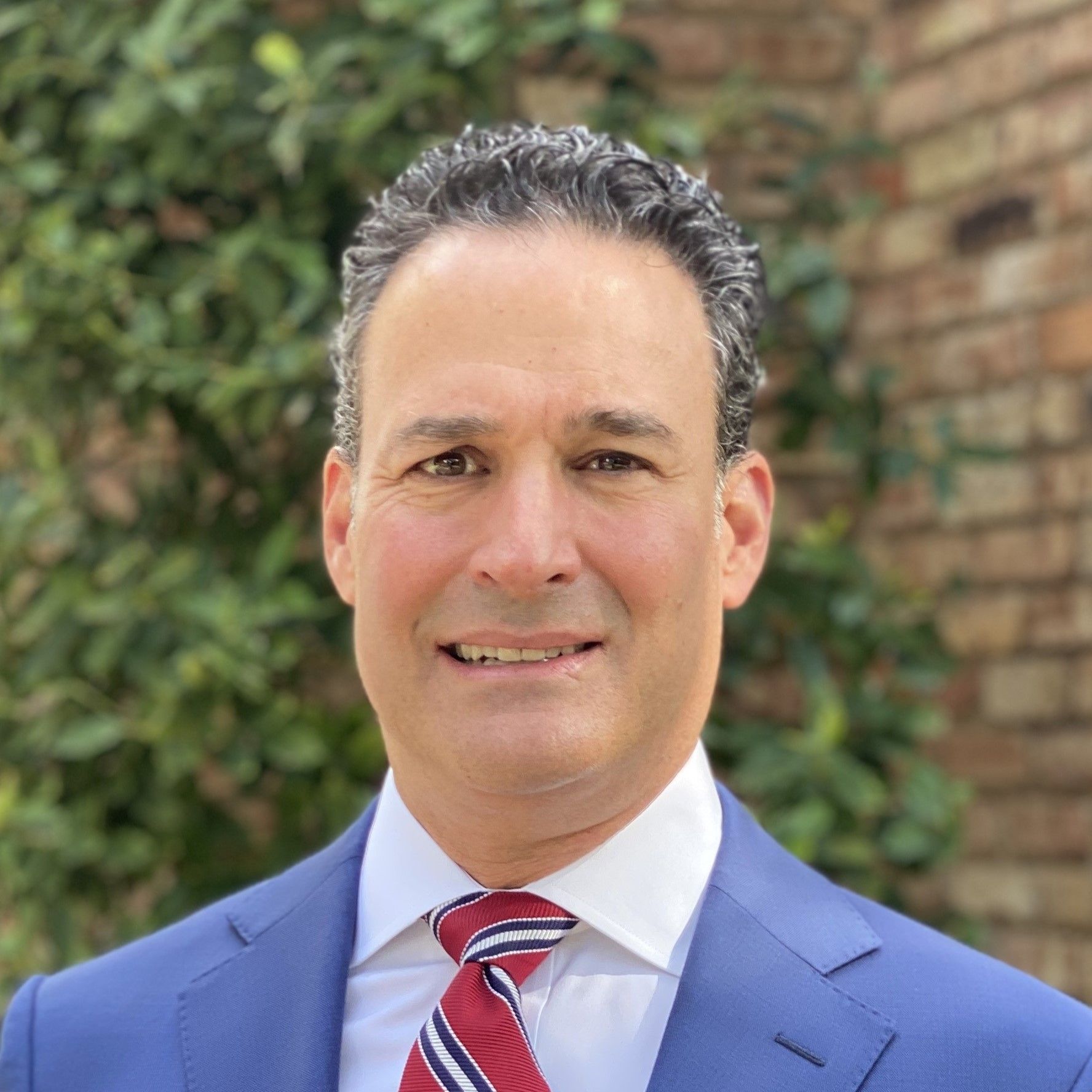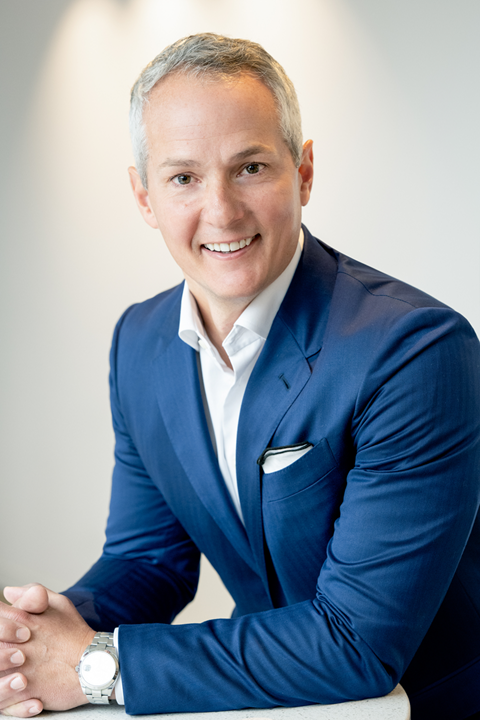Extended Stay Market Speaker Insights
)
TRAVIS BURNS, Vice President Of Development, Aimbridge
 If you wanted everyone to take away just ONE thing from this inaugural event, what would that one thing be?
If you wanted everyone to take away just ONE thing from this inaugural event, what would that one thing be?
A new relationship. I would emphasize the unique opportunity to foster new relationships. Within the extended stay industry, a wealth of expertise resides among the remarkable individuals who will be in attendance. By cultivating connections with developers, brands, management companies, and other stakeholders, attendees can unlock substantial opportunities. I think those new relationships made will be a key contributor to the overall success of this event.
What drove you to focus on extended stay hotel assets vs. other types of hotel assets?
As someone who has worked in the extended stay space multiple times during my hospitality career, I’ve witnessed firsthand the remarkable resilience of extended stay assets. These properties played a crucial role in sustaining livelihoods during the challenging times of the pandemic, ensuring that many of us had food on our tables, so it’s also been exciting to be a part of the continued growth of the segment. The sector’s momentum remains strong, attracting attention from new partners, lenders, and major brands. As new prospective owners and institutional investors recognize the sector’s potential, it’s truly an incredible time to be in the extended stay space.
What do you enjoy about extended stay specifically?
I love the people you get to serve. Guests stay for a much longer period at these hotels, so you often get to know them personally. The ability to serve those guests and the community is a unique aspect of the extended stay segment that I’ve been fortunate to be a part of.
For the newbies/extended stay-curious, what are the top 3 things you would say are the most important things they need to understand about owning/operating extended stay assets?
If you’re venturing into the world of extended stay assets, here are three crucial aspects to understand:
Operational Excellence is a must. The extended stay operating model is simple, yet difficult; Maintain the cleanest and safest location and fill it with longer term stays. It requires consistency and dedication. Not staying true to the operating model will only yield financial headaches for the owner and the asset.
Extended stay properties thrive on consistent, long-term occupancy. Effective pricing strategies, revenue management, and labor/cost controls all impact profitability, but none more so than maintaining occupancy that is focused on guests that stay 7 or 30+ nights. Balancing rates with guest satisfaction ensures repeat business.
The General Manager is the key to success. The general manager at these locations wears so many hats: head of housekeeping, front desk manager, director of sales, etc. Hiring and retaining the best general manager, that understands and is committed to the operating model, is paramount.
How do you define “extended stay” – as a hotel asset, as a product category, as something that is clearly “this not that.” Where do you draw a clear line in the sand between an extended stay asset and a place with a bed and some form of kitchen that, sure, people could stay there for an extended period of time if they wanted to?
As a hotel asset: Extended stay refers to lodging designed for longer stays, typically weeks or months. This typically includes a kitchen with a refrigerator, range, microwave and more. As a product category: Extended stay hotels offer specific amenities, styles, and price options tailored to unique guests with extended stay needs. The clear line in the sand: It's more than just having a bed and a kitchen. Extended stay properties provide a distinct experience, combining convenience, affordability, and practicality for the long term guest as well as lower operating costs and higher NOI percentages for the owner.
There are/are not too many brands. Discuss.
The extended-stay market has witnessed a renaissance in brand launches, especially in the economy and midscale segments. Despite the addition of multiple new brands, the economy and midscale extended-stay inventories are far from overbuilt. Underserved markets still exist, presenting opportunities for additional flags and locations. Older assets transitioning from extended-stay properties to apartments can create market openings for new brands as well. COVID further highlighted the durability and resiliency of extended-stay properties and as institutional interest in the space grows, this trend is likely to continue. While there are many brands, the demand for extended-stay accommodations continues to grow. The key lies in understanding the unique needs of extended-stay guests and delivering value through well located and excellently operated properties.
What is one of the best hotel stays you’ve ever experienced and what did you love about it?
I’d be remiss if I chose just one. My career in hospitality has granted me the privilege of visiting numerous remarkable hotels, and there are still more on my bucket list! While I may not recall every detail about each hotel, what remains etched in my memory are the people. The essence of true hospitality thrives, personified in the incredible hotel staffs that we work with. I consider myself fortunate to be a part of this extraordinary industry.
JESSICA JANIS, Director | Practice Leader, Hospitality, Corning Optical Communications

If you wanted everyone to take away just ONE thing from this inaugural event, what would that one thing be?
Extended Stay typically means more than 1 guest per room with more than 1 device that needs to be connected. Are hotel owners and operators planning on providing the right connectivity for these guests so that they can stream their videos, be on video calls and feel like they have the same comforts of connectivity like they do at home?
What is one of the best hotel stays you’ve ever experienced and what did you love about it?
I took my son for a golf getaway in Punta Mita. We stayed at the St Regis. It was so memorable as they made my 13 year old feel special - they knew what he liked and treated us like family everywhere we went on the property. They curated the best experience based on their research on us as well as my Bonvoy status. He still talks about it 3 years later. I’ve stayed in a variety of high end hotels, but seeing my son feel important and talk about the experience - that was a huge win. It’s all about how a property and their associates make you feel.
MATT WEXLER, Principal, Excel Group
 How do you define “extended stay” – as a hotel asset, as a product category, as something that is clearly “this not that.”
How do you define “extended stay” – as a hotel asset, as a product category, as something that is clearly “this not that.”
Where do you draw a clear line in the sand between an extended stay asset and a place with a bed and some form of
kitchen that, sure, people could stay there for an extended period of time if they wanted to?
An extended stay hotel is a hotel that I could feel comfortable staying in for every night for a month – that’s my bar and I’m sticking to it! It’s not just about guestroom amenities, it’s about the service and having enough additional living working space inside the guestroom that the experience is more than just a bed and a kitchen.
There are/are not too many brands. Discuss.
Yes, there are too many brands. When people (including leaders) in the industry aren’t able to recognize certain brands and what makes them distinct/different, that is a sign that there are too many brands.
What is one of the best hotel stays you’ve ever experienced and what did you love about it?
The Nobu in Palo Alto – the food (including the breakfast), the location, the view and, I can’t resist, the guestroom bathroom toilet!
GREG JUCEAM, CEO, Extended Stay America
 If you wanted everyone to take away just ONE thing from this inaugural event, what would that one thing be?
If you wanted everyone to take away just ONE thing from this inaugural event, what would that one thing be?
The extended stay concept is simple to understand on paper but is harder to execute than most people realize. Many lessons have been learned over the years by developers, operators, and brands; those that go it alone are likely to repeat these same mistakes. There are great benefits to aligning with experienced partners that have proven business models. At Extended Stay America, for example, we have been pioneers and segment leaders for nearly 30 years now and have built systems, programs, and training that are solely focused on serving guests staying 7 nights or more. This creates a notable competitive advantage relative to transient brand families who are “dabbling” in extended stay and trying to “bolt on” solutions to compete effectively in this space.
For the newbies/extended stay-curious, what are the top 3 things you would say are the most important things they need to understand about owning/operating extended stay assets?
First, you need to know that there isn’t enough corporate demand to fill all of your hotel rooms for 7+ night business; there are only so many traveling nurses and consultants out there on long-term project work. You will need a mix of corporate, leisure, and residential business to achieve the occupancies needed to optimize the model. This means you need to be willing to serve a diverse mix of business and accept the challenges that come with various types and channels of room demand. Second, as it relates to demand from guests paying on their own dime, affordability matters. This is why most extended stay guests prefer rate discounts over loyalty miles and airline points, which are costly to hotel owners. If renting an apartment or home sharing represents a better value proposition, guests will choose that path instead. This is why demand is highest at the Economy and Midscale price tiers for the “true” 7+ night guest and why the cost to build and operate must be carefully managed to reach acceptable IRRs. Third (and this is where a lot of people make mistakes), property managers have to be willing to forgo nightly business at higher rates so they don’t displace the weekly and monthly length of stay guests. It takes discipline to turn down the “bird in hand” and conviction that your chosen brand has the ability to generate adequate long stay demand. If a property does not have an average annual length of stay of 7 or more nights, it will not achieve the benefits of the extended stay expense model.
How do you define “extended stay” – as a hotel asset, as a product category, as something that is clearly “this not that.” Where do you draw a clear line in the sand between an extended stay asset and a place with a bed and some form of kitchen that, sure, people could stay there for an extended period of time if they wanted to?
There are a lot of people that define extended stay as a room with a built-in kitchen. I would suggest that this is a good starting point from a product description standpoint because mini-fridges and portable kitchens (e.g. hot plates) really shouldn’t qualify.
But whether a hotel has extended stay amenities is a different question than whether a hotel performs like a true extended stay property should. If a hotel is built with a kitchen, on-site laundry, and other extended stay features and it ends up serving mostly nightly guests, the owner would probably have been better off building a less expensive transient property type instead. One of the most important metrics for extended stay is the average length of stay of its guests over the course of a year. The benefits of the extended stay model are only realized when the vast majority of the guests are staying on a weekly or monthly basis. At Extended Stay America, for example, more than 75% of our guests stay for a week or longer. This is what generates the steadiest occupancy, allows for the most efficient service model, and ultimately results in the strongest return on investment.
There are/are not too many brands. Discuss.
I’ve always thought this discussion has gotten more airtime than it deserves. What is important is that guests have enough optionality and clear information to make informed decisions about the price point, products, and amenity levels that suit their needs for travel to any given location. Internet technology and social media reviews have made this information easy to access for all consumers.
While I acknowledge the myriad of options can be confusing, having more brands simply gives travelers and hotel investors more choice; it also forces less relevant brands to evolve or reposition if they want to endure. When there is consolidation of brands into the major brand families, new entrants inevitably emerge to back fill any market gaps. Lastly, let’s also remember that more than one-third of the hotels in the U.S. are still independent and you have home sharing options on top of the hotel supply – so there are additional lodging options outside of the branded hotel universe for both guests and property investors alike.
IAN MCCLURE, CEO, Gulf Coast Hotel Management, Inc.
 What drove you to focus on extended stay hotel assets vs. other types of hotel assets? What do you enjoy about extended stay specifically?
What drove you to focus on extended stay hotel assets vs. other types of hotel assets? What do you enjoy about extended stay specifically?
Low fixed costs that produce durable, consistent and long-term cash flow.
For the newbies/extended stay-curious, what are the top 3 things you would say are the most important things they need to understand about owning/operating extended stay assets?
If a new owner wants to deliver a 60+% GOP in the economy extended stay segment the top three things that are most important are #1 follow the economy extended stay operating model; #2 follow the economy extended stay operating model and #3 follow the economy extended stay operating model otherwise they will own a transient hotel.
How do you define “extended stay” – as a hotel asset, as a product category, as something that is clearly “this not that.” Where do you draw a clear line in the sand between an extended stay asset and a place with a bed and some form of kkitchen that, sure, people could stay there for an extended period of time if they wanted to?
Extended Stay is a hotel asset class (if branded) where the asset is constructed with kitchens in each guest room to allow guests to comfortably stay in the hotel for 7+ nights (30+ nights if correctly operated). If the asset is not branded but still has a room with a bed and kitchen, it becomes a multi-family asset without a long-term lease.
There are/are not too many brands. Discuss.
There are not too many extended stay brands nor are there too many extended stay assets in the market relative to the extended stay demand. Extended stay demand is expected to outpace extended supply for 10+ years at the current development pace.
ERIC JACOBS, Chief Development Officer- Midscale Brands, Marriott
 If you wanted everyone to take away just ONE thing from this inaugural event, what would that one thing be?
If you wanted everyone to take away just ONE thing from this inaugural event, what would that one thing be?
The big takeaway is that this is a great time to take advantage of the opportunities that Extended Stay hotels offer in terms of growing consumer demand, lower cost to build and own, speed to market and operating efficiencies that drive long term profitability. Its an exciting time to be a hotel owner and the extended stay space as a long runway for growth especially with a company like Marriott that offers brand breadth and experience across all lodging tiers and business segments.
What drove you to focus on extended stay hotel assets vs. other types of hotel assets? What do you enjoy about extended stay specifically?
Over the last few years, we’ve seen an increase in leisure demand, longer stays, blending of business/leisure travel, and increased consumer demand for more spacious accommodations with home-like amenities. Given these shifts, we’ve launched two new growth vehicles for our owners – Apartments by Marriott Bonvoy (AMB), positioned in the premium tier, and StudioRes, positioned in the Midscale tier. AMB is a soft brand for serviced apartments with residential qualities (e.g., kitchens, multiple bedrooms, bathrooms and
communal spaces). Both brands differ from traditional hotel products in a few areas: no F&B offerings, no meeting spaces, weekly housekeeping, and small public space.
For the newbies/extended stay-curious, what are the top 3 things you would say are the most important things they need to understand about owning/operating extended stay assets?
We define extended stay simply as a stay of 5 nights or longer. Given Marriott’s breadth and experience in the extended stay segment, we’re able to capture consumer demand from those seeking longer stays from 5, 15 or 20+ nights - we have a comfortable and affordable option across luxury, premium and midscale lodging tiers.
There are/are not too many brands. Discuss.
As mentioned, consumers are looking for all different types of accommodations and price points depending on their trip purpose and whether they’re traveling alone, with business colleagues or with family members. There’s plenty of room for growth across markets globally and new brands allow us to tailor the offering to specific customer needs in specific markets.
LAUREN O’NEAL, VP, Premium Conversion Brands, Marriott
 If you wanted everyone to take away just ONE thing from this inaugural event, what would that one thing be?
If you wanted everyone to take away just ONE thing from this inaugural event, what would that one thing be?
The face of the extended stay traveler is changing and the want/need for extended stay products is increasing. There is a need for more premium products in this space to accommodate a more affluent traveler. The hotel industry needs to keep up!
What drove you to focus on extended stay hotel assets vs. other types of hotel assets? What do you enjoy about extended stay specifically?
The focus on extended stay is grounded in the insight that travelers are now wanting more residential amenities when traveling – kitchen, washer/dryer, separate bedrooms. This is directly connected to an increase in leisure and bleisure travel.
For the newbies/extended stay-curious, what are the top 3 things you would say are the most important things they need to understand about owning/operating extended stay assets?
1. While much of the operating model resembles that of a traditional hotel, there are key differences specifically in the revenue management and sales strategy that need to be addressed. 2. Unit mix, specifically leaning into 1+ bedrooms vs studios is key to driving higher ADR and longer ALOS.
3. Location is key! When staying in a destination for a longer length of time guests should feel like they are part of the neighborhood, shopping and eating where the locals eat. Not isolated in a remote part of town.
How do you define “extended stay” – as a hotel asset, as a product category, as something that is clearly “this not that.” Where do you draw a clear line in the sand between an extended stay asset and a place with a bed and some form of kitchen that, sure, people could stay there for an extended period of time if they wanted to?
A true extended stay experience offers guests the comforts of home (full kitchen, washer/dryer, separate bedrooms), NOT a hotel room with a kitchen. It also encourages exploration of the local neighborhood while offering a safe, home base for guests. Associates should be deeply knowledgeable about the best restaurants, markets, coffee shops and local delicacies (“Go here and ask for this!”).
There are/are not too many brands. Discuss.
There are too many similar brands offering the same level of experience in the extended stay category. There are not enough stand out brands offering a differentiated experience.
What is one of the best hotel stays you’ve ever experienced and what did you love about it?
The Ritz-Carlton, Al Wadi Desert, a 5 star hotel located a few hours outside of Dubai. The expansive resort allowed for an uninterrupted stay (if you like), the music, botanicals, scent created a zen-like experience which was exactly what I needed at the time. The rooms where spacious and all amenities were easily accessible – f&b, spa, gym, outdoor space. Service level was just enough with my needs always anticipated. It was a memorable experience.
DANIEL H. LESSER, Co-Founder, President & CEO, LW Hospitality Advisors
 How do you define “extended stay” – as a hotel asset, as a product category, as something that is clearly “this not that.” Where do you draw a clear line in the sand between an extended stay asset and a place with a bed and some form of kitchen that, sure, people could stay there for an extended period of time if they wanted to?
How do you define “extended stay” – as a hotel asset, as a product category, as something that is clearly “this not that.” Where do you draw a clear line in the sand between an extended stay asset and a place with a bed and some form of kitchen that, sure, people could stay there for an extended period of time if they wanted to?
An extended stay hotel offers long term home-away-from-home style accommodations. With amenities such as self-serve laundry and in-suite kitchens, they tend to be a cost-effective and convenient alternative to renting a traditional apartment. If a guest stays for a longer period of time, extended stay hotels typically offer discounted rates. With this said many extended stay hotels gladly welcome transient hotel patronage on a nightly basis. Additionally, many full-service hotels gladly offer longterm stay guests oversized units including suites.
There are/are not too many brands. Discuss.
I have written and commented extensively on this topic and been vocal that there are too many hotel brands….see
Thank goodness’ for more hotel brands, Hotels Weigh How Many Brands Are Just Too Many in Travel’s Worst Year Ever, More hotel
brands – really?
PAUL DUNCAN, Chief Development Officer, West77 Partners
 If you wanted everyone to take away just ONE thing from this inaugural event, what would that one thing be?
If you wanted everyone to take away just ONE thing from this inaugural event, what would that one thing be?
This segment is not for everyone, and that’s okay. But, if you are going to venture into it, you need to commit to doing it the right way. Even if you are already in it, hopefully there are enough experts at this conference to convince you that this is a unique segment and it can be incredibly rewarding if you are willing to make the mental shift that this is not your traditional transient hotel.
What drove you to focus on extended stay hotel assets vs. other types of hotel assets? What do you enjoy about extended stay specifically?
As a developer, I honestly lucked into it, but am incredibly grateful for the opportunity and extremely lucky to have had the door opened to for me to jump in. I came into this with experience from programmatic rollouts, and I think that is part that I really enjoy about this. These are meant to be very efficient and prototypical. That bothers some people, but it gets me excited on figuring out how minor tweaks can be made to really improve constructability, bottom line, guest experience, etc. Others want to the sexy hotels, “homeruns” if you will. I love the Warren Buffett approach these offer, making them a solid single or double all day long.
For the newbies/extended stay-curious, what are the top 3 things you would say are the most important things they need to understand about owning/operating extended stay assets?
1. [Primarily for existing hoteliers] These are not traditional transient hotels, and you will fail if you try to make it one. I think there are too many hoteliers out there that have heard of the success of extended stays and think “I want one.” That’s great and they should get them in their portfolio, but they need to understand it is different. Operating it the same way they always have will lead to frustration and failure. 2. To go along with the first point, it is a hybrid hotel/apartment. You get the benefits of higher rates (similar to a hotel) with the longer term guests and consistent cashflow (similar to an apartment). This is why so many apartment developers are interested in this segment. They can pivot to something similar and boost their cashflow. 3. As a newbie, the management of these is incredibly important. Make sure you do your research and you are finding an
experienced extended stay operator. This alone will be the biggest factor on your success.
How do you define “extended stay” – as a hotel asset, as a product category, as something that is clearly “this not that.” Where do you draw a clear line in the sand between an extended stay asset and a place with a bed and some form of kitchen that, sure, people could stay there for an extended period of time if they wanted to?
I would probably lean towards a product category. Really, it can be any place that has a bed and some form of kitchen that allows people to stay for an extended period. There are just so many variations of “extended stay” that guests have to choose from. An AirBNB or VRBO could be defined as an extended stay if someone wanted to choose that. Now, you won’t get the same consistent experience from place to place, you could have to do the cleaning, etc. but it has everything you need to stay for a long period of time. However, I think we are primarily talking about the extended stays in the hotel segment. Even here there is a wide range, so it’s up to the guest to determine what works best for them. Staying at an upscale extended stay like a Residence Inn or Homewood Suites certainly have all of the amenities you would want from a traditional hotel, but you pay for that. Do guests staying over a week want to pay those rates? Or would they rather sacrifice some of the things like daily cleanings or free breakfast, for a more affordable price. It’s all a balancing act with offerings and what guests are really looking for. At the end of the day, even as big of a product category as this could be considered, in my opinion, there is one segment in there that is considered a true “extended stay” and that is the economic to lower midscale hotel classification of extended stays. That is where it has been proven out to have true longer term guests and meets that balancing point for the developers looking for returns, but guests looking for a safe, clean and affordable place to stay.
There are/are not too many brands. Discuss.
In general for the hotel industry, yes, there are too many brands. Right now in the extended stay world, I think it’s starting to get crowded, but it’s a manageable number out there. With Hilton, Marriott, Hyatt and Wyndham out there trying to push their flags out as fast as possible, I think there is a chance this segment gets crowded quick, but many of these new ones may quickly become viewed as a traditional transient hotel (similar to a Homewood or Residence Inn). As these roll out, I think we will see a growing “extended stay” segment, but one that is more bifurcated into multiple classifications within that segment.
What is one of the best hotel stays you’ve ever experienced and what did you love about it?
It’s hard to say what my best experience is because there are so many variables into making that determination, but I can say there is a strong correlation between price and experience. Two of my most memorable would be… The American Club in Kohler, WI. It’s an old hotel but with Kohler putting all of their bells and whistles into the bathroom and around the guestroom, it was a cool place. Also, Vintage House in Yountville, CA. Being in Napa area sets the scene, but it was a gorgeous property with a great breakfast and only blocks from Michelin rated restaurants.
JARED MEABON, SVP, Franchise Sales & Development, Wyndham Hotels & Resorts
 If you wanted everyone to take away just ONE thing from this inaugural event, what would that one thing be?
If you wanted everyone to take away just ONE thing from this inaugural event, what would that one thing be?
Efficiency is everything. When it comes to managing your day-to-day operations, you have to consider what guests ultimately need – with need being that key word. When we created ECHO Suites, we decided to limit things like housekeeping and daily breakfast. At an economy extended stay hotel, guests are open to tidying their own rooms or cooking up a meal right in their own room. The decision to limit those amenities means we’re not offering something just to offer it, and that results in a more cost effective stay for the guest and higher efficiency for owners.
How do you define “extended stay” – as a hotel asset, as a product category, as something that is clearly “this not that.” Where do you draw a clear line in the sand between an extended stay asset and a place with a bed and some form of kitchen that, sure, people could stay there for an extended period of time if they wanted to?
Extended stay hotels are fundamentally different than transient hotels. It’s not as simple as taking an asset and calling it extended stay. You need to take time to fit the hotel to the guest it will be serving. These guests want to feel like they’re at home. They need kitchens, refrigerators and space so they can live their daily life from their room. You have to offer a hotel to fit that guest need. With ECHO, the amenities and floorplan were designed to deliver on that guest need, and make it easier for the staff to do their jobs day-to-day. On the other end of the segment, we have WaterWalk Extended Stay by Wyndham which follows a LIVE|STAY model. STAY units are fully furnished and cater to guests looking for a traditional extended-stay, residential-like experience, while LIVE units are unfurnished and allow guests to create a long-term space that truly feels like home. That flexibility benefits owners, operators and guests alike because the units adapt in real time to fit market and guest needs. Whether you’re building an extended stay hotel from the ground up or converting it, the investments in creating a true extended stay asset is what will drive success to that hotel in the long run.
There are/are not too many brands. Discuss.
When we look at our portfolio, we think about our owners and what opportunities we can bring to them to capitalize on guest needs. When we see white space, that’s what we seek to fill in, and that’s why over the last several years we’ve introduced both ECHO Suites Extended Stay by Wyndham and WaterWalk Extended Stay by Wyndham. The addition of those brands mean we have a hotel for any guest, whether they’re looking for an economy, midscale or upscale extended stay experience. From contractors hitting the road amidst the historic infrastructure work in the U.S. to digital nomads who are embracing the work from anywhere mindset, we want Wyndham to be there for guests of all kinds,
and we want to create thoughtful brands that deliver on that opportunity to our owners.

